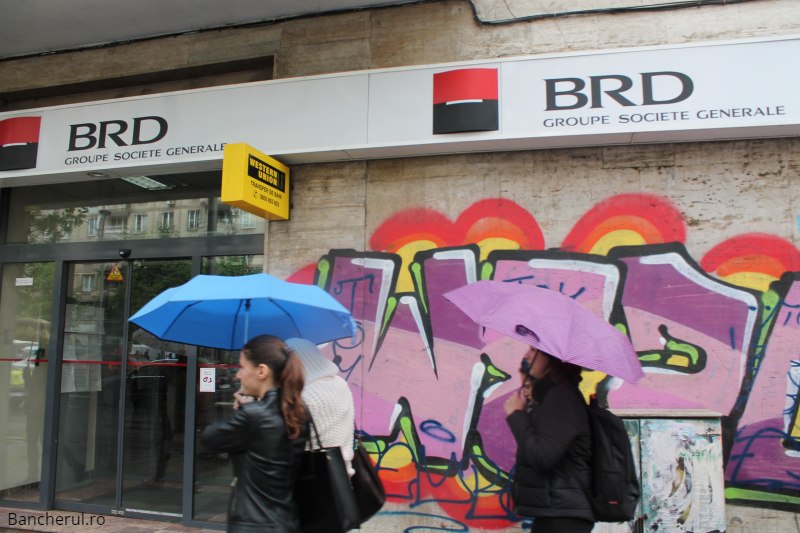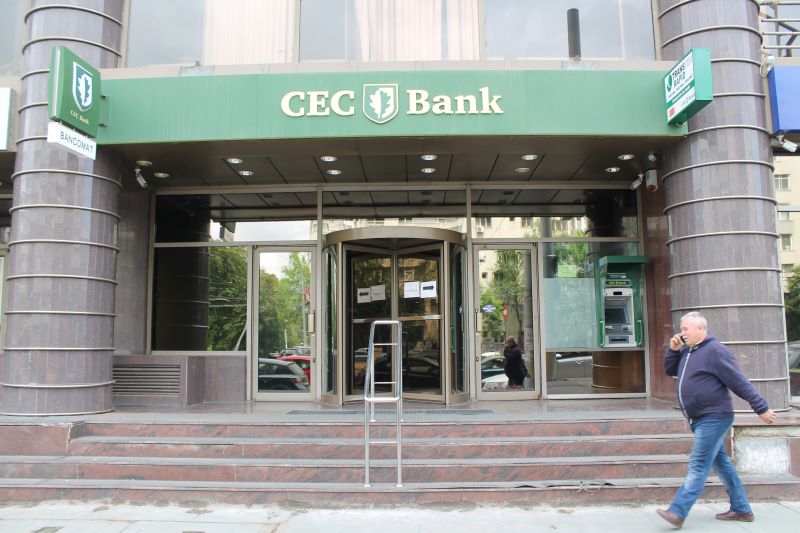Banca Nationala a Cehiei adopta masuri impotriva COVID-19, intr-o sedinta extraordinara: scade dobanda si permite bancilor sa obtina lichiditati si sa amane ratele la credite

Banca Nationala a Cehiei a adoptat masuri impotriva crizei COVID-19, intr-o sedinta extraordinara din 16 martie 2020: a scazut dobanda de referinta cu o jumatate de punct, la 1,75%, mentionand ca este pregatita sa o reduca si mai mult, daca va fi nevoie.
In acelasi timp, au fost luate masuri pentru asigurarea de lichiditati in piata interbancara.
Astfel, incepand din 18 martie vor fi organizate de trei ori pe saptamana (luni, miercuri si vineri) operiuni repo pentru furnizarea de lichiditati, fata de o data pe saptamana, cum se intampla pana acum.
Toate solicitarile de lichiditati ale bancilor vor fi acoperite in cadrul acestor operatiuni, la o dobanda de 0% pe an.
De asemenea, banca centrala a precizat ca este gata sa atenueze orice fluctuatii excesive ale cursului de schimb valutar, prin folosirea instrumentelor la dispozitie, conform regimului de curs de schimb controlat.
O alta masura a fost amanarea cresterii buffer-ului de capital contraciclic impus bancilor, de 2% incepand din 1 iulie 2020, acesta urmand sa ramana la actualul nivel de 1,75%.
In privinta deciziei bancilor de a amana ratele la credite, banca centrala a Cehiei a mentionat ca va permite acest lucru fara sa impuna bancilor reclasificarea respectivelor credite si implicit capital suplimentar, mentionand ca este necesara o astfel de flexibilitate a normelor prudentiale.
Comunicatul Bancii Centrale a Cehiei:
CNB adopts stabilising measures in connection with coronavirus epidemic
At its extraordinary monetary policy meeting today, the Bank Board of the Czech National Bank unanimously adopted measures to mitigate the impacts of the situation caused by the coronavirus epidemic on Czech firms, businesses and households.
At its extraordinary monetary policy meeting today, the Bank Board of the Czech National Bank lowered the two-week repo rate by 50 basis points to 1.75%. At the same time, it lowered the Lombard rate to 2.75% and the discount rate to 0.75%. The change in rates takes effect on Tuesday 17 March 2020.
In addition, the Bank Board declared that it was ready to cut interest rates further should the economic situation so require.
Although the CNB currently perceives no shortage of liquidity in the banking sector, the Bank Board also, as a preventive measure, amended the rules of the liquidity-providing monetary policy operations introduced in October 2008 to support the domestic financial market during the global financial crisis. Starting Wednesday 18 March 2020, these liquidity-providing repo operations will be announced three times a week (on Monday, Wednesday and Friday) instead of the current weekly frequency. Banks´ bids in these liquidity-providing repo operations will be fully satisfied at a fixed rate corresponding to the two-week repo rate, i.e. with a zero spread.
Furthermore, the Bank Board confirmed that the Czech National Bank stood ready to react to any excessive fluctuations of the koruna exchange rate using its instruments, in line with the managed float exchange rate regime.
The CNB Bank Board also revised its earlier decision adopted in May 2019 to increase the countercyclical capital buffer rate for exposures located in the Czech Republic to 2% with effect from 1 July 2020. This decision means that banks will continue to maintain the currently applicable rate of this buffer at 1.75%.
In this context, the CNB states that the capital position of the domestic banking sector is currently robust thanks to capital reserves and voluntary capital surpluses. The banking sector as a whole can cope with the consequences and significantly adverse economic developments, which is confirmed by both supervisory and macro stress tests. Therefore, the CNB does not at present consider it necessary to cut the countercyclical capital buffer rate below the current level of 1.75%. At the same time, however, the CNB is ready to release the buffer immediately and fully were the banking sector´s unexpected losses to rise, in order to support banks´ ability to provide credit to non-financial corporations and households without interruption.
Due to high uncertainty regarding further economic developments, the CNB expects in the current situation that banks will, with immediate effect and until both acute and longer-term consequences of the new coronavirus epidemic fade away, refrain from any dividend payouts or any other steps that might jeopardise individual banks´ resilience.
The Bank Board also discussed the supervisory approach to banks´ potential postponement of clients´ loan instalments. In general, the CNB does not prescribe banks the strategy and rules which they should adopt for the provision, administration and recovery of credit. The decision allowing to postpone instalments of all types of loans is thus within the competence of individual banks. Where a client´s loss of income is only temporary due to the coronavirus infection or the related preventive measures, the postponement of instalments is an appropriate way to ensure the repayment of the entire receivable in the future. Such a postponement may not lead to reclassifying a bank´s liability as a classified, or non-performing, receivable under the applicable rules. The Bank Board considers the use of such supervisory flexibility as desirable. However, the overall assessment will depend on the duration of the loss of income and on the extent to which a client´s ability to continue repaying the loan will be affected. Therefore, it is important that banks remain sufficiently capitalised.
A press conference attended by Governor Jiří Rusnok, Executive Director of the Monetary Department Petr Král and Executive Director of the Financial Stability Department Jan Frait will take place at 5.15 p.m. today at the CNB Congress Centre. Owing to the measures to counter the spread of the coronavirus, media presence will be limited to the Bloomberg, ČTK and Reuters agencies and Czech Television. The press conference will be streamed live on the CNB website.
Comentarii
Nu există comentarii pentru această știre.
Adauga un comentariu
Alte stiri din categoria: Criza COVID-19
In majoritatea unitatilor BRD se poate intra fara certificat verde
BRD Groupe Societe Generale anunta ca se poate intra fara certificat verde in majoritatea unitatilor sale, insa exista cateva sucursale unde este obligatorie prezentarea certificatului de vaccinare sau dovada trecerii... detalii
La BCR se poate intra fara certificat verde
Banca Comerciala Romana (BCR) anunta ca intrarea clientilor in unitatile bancare (hub) este posibila fara prezentarea unui certificat verde (dovada vaccinarii sau trecerii prin boala COVID-19).Iata anuntul bancii, postat pe... detalii
Firmele, obligate sa dea zile libere parintilor care stau cu copiii in timpul pandemiei de coronavirus
Părinții care trebuie să supravegheze copiii în cazul în care cursurile sunt suspendate pot beneficia de zile libere plătite, conform unui comunicat PwC.Recent, prin Ordonanța 110/2021, Guvernul a reglementat că pentru anul școlar în curs se acordă același tip de sprijin pentru părinți cu cel care a fost în vigoare anul trecut, în contextul pandemiei.Însă pe durata vacanțelor școlare, măsura nu se aplică.Zilele libere se acordă obligatoriu de către angajator numai unuia dintre părinți, în cazul familiilor care au copii mai mici de 12 ani sau copii cu dizabilități de până la 26 de ani înscriși într-o unitate de învățământ sau într-o unitate de educație timpurie antepreșcolară.Pentru a putea fi acordate zile libere, locul de muncă ocupat de părinte trebuie să nu permită munca la domiciliu sau telemunca.
CEC Bank: accesul in banca se face fara certificat verde
"Accesul la serviciile CEC Bank nu va fi afectat de restricții. Serviciile financiare sunt esențiale pentru asigurarea nevoilor de bază", conform unui anunt al bancii, in care se adauga:"În contextul... detalii
 Cum se amana ratele la creditele Garanti BBVA
Cum se amana ratele la creditele Garanti BBVA
 Cum se face amanarea ratelor la creditele Unicredit Bank, conform OUG 227/2020
Cum se face amanarea ratelor la creditele Unicredit Bank, conform OUG 227/2020
 Cum se amana ratele la Credit Europe Bank
Cum se amana ratele la Credit Europe Bank
 Banca Romaneasca anunta cum vor fi amanate ratele la credite
Banca Romaneasca anunta cum vor fi amanate ratele la credite
 Raiffeisen Bank isi repara sistemul informatic si de carduri tot week-end-ul, dupa caderea din aceasta saptamana
Raiffeisen Bank isi repara sistemul informatic si de carduri tot week-end-ul, dupa caderea din aceasta saptamana
 Legea privind suspendarea popririlor a fost declarata neconstitutionala
Legea privind suspendarea popririlor a fost declarata neconstitutionala
 Guvernul lanseaza Programul IMM Leasing, cu avans 0 si garantii de stat pentru echipamente si utilaje in leasing
Guvernul lanseaza Programul IMM Leasing, cu avans 0 si garantii de stat pentru echipamente si utilaje in leasing
 Eximbank va administra un nou program de garantare a creditelor pentru companiile mari, in contextul crizei COVID-19
Eximbank va administra un nou program de garantare a creditelor pentru companiile mari, in contextul crizei COVID-19
 Guvernul dubleaza valoarea unui credit Prima Casa pentru locuinte noi, pana la 140.000 de euro
Guvernul dubleaza valoarea unui credit Prima Casa pentru locuinte noi, pana la 140.000 de euro
 BCR si BRD au prelungit pana la sfarsitul lunii septembrie perioada de amanare a ratelor la credite
Vezi toate stirile
BCR si BRD au prelungit pana la sfarsitul lunii septembrie perioada de amanare a ratelor la credite
Vezi toate stirile
Criza COVID-19
- In majoritatea unitatilor BRD se poate intra fara certificat verde
- La BCR se poate intra fara certificat verde
- Firmele, obligate sa dea zile libere parintilor care stau cu copiii in timpul pandemiei de coronavirus
- CEC Bank: accesul in banca se face fara certificat verde
- Cum se amana ratele la creditele Garanti BBVA
Topuri Banci
- Topul bancilor dupa active si cota de piata in perioada 2022-2015
- Topul bancilor cu cele mai mici dobanzi la creditele de nevoi personale
- Topul bancilor la active in 2019
- Topul celor mai mari banci din Romania dupa valoarea activelor in 2018
- Topul bancilor dupa active in 2017
Asociatia Romana a Bancilor (ARB)
- Băncile din România nu au majorat comisioanele aferente operațiunilor în numerar
- Concurs de educatie financiara pentru elevi, cu premii in bani
- Creditele acordate de banci au crescut cu 14% in 2022
- Romanii stiu educatie financiara de nota 7
- Gradul de incluziune financiara in Romania a ajuns la aproape 70%
ROBOR
- ROBOR: ce este, cum se calculeaza, ce il influenteaza, explicat de Asociatia Pietelor Financiare
- ROBOR a scazut la 1,59%, dupa ce BNR a redus dobanda la 1,25%
- Dobanzile variabile la creditele noi in lei nu scad, pentru ca IRCC ramane aproape neschimbat, la 2,4%, desi ROBOR s-a micsorat cu un punct, la 2,2%
- IRCC, indicele de dobanda pentru creditele in lei ale persoanelor fizice, a scazut la 1,75%, dar nu va avea efecte imediate pe piata creditarii
- Istoricul ROBOR la 3 luni, in perioada 01.08.1995 - 31.12.2019
Taxa bancara
- Normele metodologice pentru aplicarea taxei bancare, publicate de Ministerul Finantelor
- Noul ROBOR se va aplica automat la creditele noi si prin refinantare la cele in derulare
- Taxa bancara ar putea fi redusa de la 1,2% la 0,4% la bancile mari si 0,2% la cele mici, insa bancherii avertizeaza ca indiferent de nivelul acesteia, intermedierea financiara va scadea iar dobanzile vor creste
- Raiffeisen anunta ca activitatea bancii a incetinit substantial din cauza taxei bancare; strategia va fi reevaluata, nu vor mai fi acordate credite cu dobanzi mici
- Tariceanu anunta un acord de principiu privind taxa bancara: ROBOR-ul ar putea fi inlocuit cu marja de dobanda a bancilor
Statistici BNR
- Deficitul contului curent, creștere cu 16% în ianuarie 2025
- Deficitul contului curent, aproape 30 miliarde euro în 2024
- Deficitul contului curent, aproape 20 miliarde euro după primele nouă luni
- Deficitul contului curent, aproape 18 miliarde euro după primele opt luni
- Deficitul contului curent, peste 9 miliarde euro pe primele cinci luni
Legislatie
- Decizia nr.105/2007 privind raportarea la Biroul de Credit
- Legea nr. 311/2015 privind schemele de garantare a depozitelor şi Fondul de garantare a depozitelor bancare
- Rambursarea anticipata a unui credit, conform OUG 50/2010
- OUG nr.21 din 1992 privind protectia consumatorului, actualizata
- Legea nr. 190 din 1999 privind creditul ipotecar pentru investiții imobiliare
Lege plafonare dobanzi credite
- Care este dobanda maxima la un credit IFN?
- BNR propune Parlamentului plafonarea dobanzilor la creditele bancilor intre 1,5 si 4 ori peste DAE medie, in functie de tipul creditului; in cazul IFN-urilor, plafonarea dobanzilor nu se justifica
- Legile privind plafonarea dobanzilor la credite si a datoriilor preluate de firmele de recuperare se discuta in Parlament (actualizat)
- Legea privind plafonarea dobanzilor la credite nu a fost inclusa pe ordinea de zi a comisiilor din Camera Deputatilor
- Senatorul Zamfir, despre plafonarea dobanzilor la credite: numai bou-i consecvent!
Anunturi banci
- BCR este inchisa vineri, 18 aprilie, si luni, 21 aprilie
- Cererile de transfer de bani prin Whatsapp, Telegram, Messenger sunt fraude
- Un telefon sau mesaj care pare de la banca poate fi frauda
- Cererea unui ajutor in bani poate fi o inselaciune
- Cate reclamatii primeste Intesa Sanpaolo Bank si cum le gestioneaza
Analize economice
- Deficitul contului curent, creștere cu 85% pe primele două luni din 2025
- Inflația anuală, redusă la 4,86%
- Comerțul, a cincea lună consecutivă de ajustare a creșterii
- Pensia reală a crescut cu peste 15% anul trecut
- Deficitul bugetar, rezultat slab după primele două luni
Ministerul Finantelor
- Deficitul bugetar, din ce în ce mai mare la început de an
- -8,65% din PIB, deficit bugetar pe anul 2024
- Datoria publică, 51,4% din PIB la mijlocul anului
- Deficit bugetar de 3,6% din PIB după prima jumătate a anului
- Deficit bugetar de 3,4% din PIB după primele cinci luni ale anului
Biroul de Credit
- FUNDAMENTAREA LEGALITATII PRELUCRARII DATELOR PERSONALE IN SISTEMUL BIROULUI DE CREDIT
- BCR: prelucrarea datelor personale la Biroul de Credit
- Care banci si IFN-uri raporteaza clientii la Biroul de Credit
- Ce trebuie sa stim despre Biroul de Credit
- Care este procedura BCR de raportare a clientilor la Biroul de Credit
Procese
- ANPC pierde un proces cu Intesa si ARB privind modul de calcul al ratelor la credite
- Un client Credius obtine in justitie anularea creditului, din cauza dobanzii prea mari
- Hotararea judecatoriei prin care Aedificium, fosta Raiffeisen Banca pentru Locuinte, si statul sunt obligati sa achite unui client prima de stat
- Decizia Curtii de Apel Bucuresti in procesul dintre Raiffeisen Banca pentru Locuinte si Curtea de Conturi
- Vodafone, obligata de judecatori sa despagubeasca un abonat caruia a refuzat sa-i repare un telefon stricat sau sa-i dea banii inapoi (decizia instantei)
Stiri economice
- Deficitul comercial pe primele două luni ale anului, majorat cu 35%
- România, campioana europeană la șomajul tinerilor
- România, pe locul trei în UE la creșterea costului salarial în T4 2024
- Producția industrială, scădere conjuncturală în ianuarie 2025
- Datoria publică, 54,6% din PIB la finele lui 2024
Statistici
- România, marginal peste Estonia la inflația anuală
- România, a doua țară din UE ca pondere a salariaților cu venituri mici
- România, pe locul trei în UE la creșterea costului muncii în T2 2024
- Cheltuielile cu pensiile - România, pe locul 19 în UE ca pondere în PIB
- Dobanda din Cehia a crescut cu 7 puncte intr-un singur an
FNGCIMM
- Programul IMM Invest continua si in 2021
- Garantiile de stat pentru credite acordate de FNGCIMM au crescut cu 185% in 2020
- Programul IMM invest se prelungeste pana in 30 iunie 2021
- Firmele pot obtine credite bancare garantate si subventionate de stat, pe baza facturilor (factoring), prin programul IMM Factor
- Programul IMM Leasing va fi operational in perioada urmatoare, anunta FNGCIMM
Calculator de credite
- ROBOR la 3 luni a scazut cu aproape un punct, dupa masurile luate de BNR; cu cat se reduce rata la credite?
- In ce mall din sectorul 4 pot face o simulare pentru o refinantare?
Noutati BCE
- Dobanda la euro scade la 2,25%
- Acord intre BCE si BNR pentru supravegherea bancilor
- Banca Centrala Europeana (BCE) explica de ce a majorat dobanda la 2%
- BCE creste dobanda la 2%, dupa ce inflatia a ajuns la 10%
- Dobânda pe termen lung a continuat să scadă in septembrie 2022. Ecartul față de Polonia și Cehia, redus semnificativ
Noutati EBA
- Bancile romanesti detin cele mai multe titluri de stat din Europa
- Guidelines on legislative and non-legislative moratoria on loan repayments applied in the light of the COVID-19 crisis
- The EBA reactivates its Guidelines on legislative and non-legislative moratoria
- EBA publishes 2018 EU-wide stress test results
- EBA launches 2018 EU-wide transparency exercise
Noutati FGDB
- Banii din banci sunt garantati, anunta FGDB
- Depozitele bancare garantate de FGDB au crescut cu 13 miliarde lei
- Depozitele bancare garantate de FGDB reprezinta doua treimi din totalul depozitelor din bancile romanesti
- Peste 80% din depozitele bancare sunt garantate
- Depozitele bancare nu intra in campania electorala
CSALB
- Sistemul bancar romanesc este deosebit de bine pregatit pentru orice fel de socuri
- La CSALB poti castiga un litigiu cu banca pe care l-ai pierde in instanta
- Negocierile dintre banci si clienti la CSALB, in crestere cu 30%
- Sondaj: dobanda fixa la credite, considerata mai buna decat cea variabila, desi este mai mare
- CSALB: Romanii cu credite caută soluții pentru reducerea ratelor. Cum raspund bancile
First Bank
- Ce trebuie sa faca cei care au asigurare la credit emisa de Euroins
- First Bank este reprezentanta Eurobank in Romania: ce se intampla cu creditele Bancpost?
- Clientii First Bank pot face plati prin Google Pay
- First Bank anunta rezultatele financiare din prima jumatate a anului 2021
- First Bank are o noua aplicatie de mobile banking
Noutati FMI
- FMI: criza COVID-19 se transforma in criza economica si financiara in 2020, suntem pregatiti cu 1 trilion (o mie de miliarde) de dolari, pentru a ajuta tarile in dificultate; prioritatea sunt ajutoarele financiare pentru familiile si firmele vulnerabile
- FMI cere BNR sa intareasca politica monetara iar Guvernului sa modifice legea pensiilor
- FMI: majorarea salariilor din sectorul public si legea pensiilor ar trebui reevaluate
- IMF statement of the 2018 Article IV Mission to Romania
- Jaewoo Lee, new IMF mission chief for Romania and Bulgaria
Noutati BERD
- Creditele neperformante (npl) - statistici BERD
- BERD este ingrijorata de investigatia autoritatilor din Republica Moldova la Victoria Bank, subsidiara Bancii Transilvania
- BERD dezvaluie cat a platit pe actiunile Piraeus Bank
- ING Bank si BERD finanteaza parcul logistic CTPark Bucharest
- EBRD hails Moldova banking breakthrough
Noutati Federal Reserve
- Federal Reserve anunta noi masuri extinse pentru combaterea crizei COVID-19, care produce pagube "imense" in Statele Unite si in lume
- Federal Reserve urca dobanda la 2,25%
- Federal Reserve decided to maintain the target range for the federal funds rate at 1-1/2 to 1-3/4 percent
- Federal Reserve majoreaza dobanda de referinta pentru dolar la 1,5% - 1,75%
- Federal Reserve issues FOMC statement
Noutati BEI
- BEI a redus cu 31% sprijinul acordat Romaniei in 2018
- Romania implements SME Initiative: EUR 580 m for Romanian businesses
- European Investment Bank (EIB) is lending EUR 20 million to Agricover Credit IFN
Mobile banking
- Comisioanele BRD pentru MyBRD Mobile, MyBRD Net, My BRD SMS
- Termeni si conditii contractuale ale serviciului You BRD
- Recomandari de securitate ale BRD pentru utilizatorii de internet/mobile banking
- CEC Bank - Ghid utilizare token sub forma de card bancar
- Cinci banci permit platile cu telefonul mobil prin Google Pay
Noutati Comisia Europeana
- Avertismentul Comitetului European pentru risc sistemic (CERS) privind vulnerabilitățile din sistemul financiar al Uniunii
- Cele mai mici preturi din Europa sunt in Romania
- State aid: Commission refers Romania to Court for failure to recover illegal aid worth up to €92 million
- Comisia Europeana publica raportul privind progresele inregistrate de Romania in cadrul mecanismului de cooperare si de verificare (MCV)
- Infringements: Commission refers Greece, Ireland and Romania to the Court of Justice for not implementing anti-money laundering rules
Noutati BVB
- BET AeRO, primul indice pentru piata AeRO, la BVB
- Laptaria cu Caimac s-a listat pe piata AeRO a BVB
- Banca Transilvania plateste un dividend brut pe actiune de 0,17 lei din profitul pe 2018
- Obligatiunile Bancii Transilvania se tranzactioneaza la Bursa de Valori Bucuresti
- Obligatiunile Good Pople SA (FRU21) au debutat pe piata AeRO
Institutul National de Statistica
- România, la 78% din PIB-ul mediu pe locuitor al UE
- Producția industrială, la cota -1,8% după 11 luni din 2024
- Deficitul contului curent, peste 26 miliarde euro în noiembrie 2024
- Comerțul cu amănuntul - în creștere cu 8% pe primele 10 luni
- Deficitul balanței comerciale la 9 luni, cu 15% mai mare față de aceeași perioadă a anului trecut
Informatii utile asigurari
- Data de la care FGA face plati pentru asigurarile RCA Euroins: 17 mai 2023
- Asigurarea împotriva dezastrelor, valabilă și in caz de faliment
- Asiguratii nu au nevoie de documente de confirmare a cutremurului
- Cum functioneaza o asigurare de viata Metropolitan pentru un credit la Banca Transilvania?
- Care sunt documente necesare pentru dosarul de dauna la Cardif?
ING Bank
- La ING se vor putea face plati instant din decembrie 2022
- Cum evitam tentativele de frauda online?
- Clientii ING Bank trebuie sa-si actualizeze aplicatia Home Bank pana in 20 martie
- Obligatiunile Rockcastle, cel mai mare proprietar de centre comerciale din Europa Centrala si de Est, intermediata de ING Bank
- ING Bank transforma departamentul de responsabilitate sociala intr-unul de sustenabilitate









